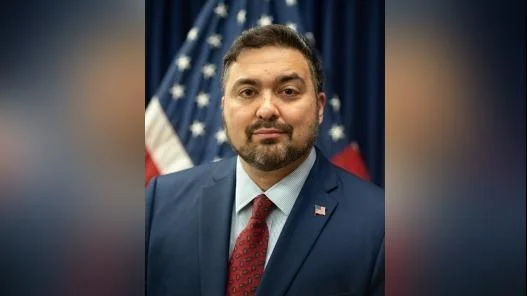Nicholas J. Ganjei United States Attorney for the Southern District of Texas | U.S. Attorney for the Southern District of Texas
Three people were charged over the weekend following a significant cocaine seizure in Texas, according to U.S. Attorney Nicolas J. Ganjei. Pablo Luis Fuentes-Rivas, Efren Pinales-Hernandez, and Daniel Teniente-Marfileno face allegations connected to the transport of the narcotics destined for Houston and northern states.
The charges detail an incident in the early hours of March 29, where law enforcement observed Fuentes-Rivas, Pinales-Hernandez, and Teniente-Marfileno unloading a large quantity of cocaine from a semi-tractor trailer at a truck lot in Baytown. As Teniente-Marfileno departed with the drug bundles, authorities conducted a traffic stop, seizing the cocaine.
The total weight of the seized narcotics was 182.25 kilograms, with an estimated street value nearing $2.3 million. Authorities immediately detained Fuentes-Rivas and Pinales-Hernandez as they attempted to exit the truck lot.
Each individual is accused of possession with intent to distribute a controlled substance and conspiracy to distribute. If found guilty, they could face life imprisonment and a potential $10 million fine.
This case is part of the Organized Crime Drug Enforcement Task Forces (OCDETF) operation, which aims to dismantle drug trafficking organizations and criminal networks impacting the U.S. This approach is driven by intelligence and involves various federal, state, and local enforcement agencies. More details on the OCDETF program are available at the Department of Justice’s OCDETF webpage.
The investigation involved multiple agencies, including the Drug Enforcement Administration, Immigration and Customs Enforcement - Homeland Security Investigations, the Texas Department of Public Safety, Houston Police Department, Cameron County Sheriff’s Office, and the Baytown Police Department. Assistant U.S. Attorney Oscar Ponce is handling the prosecution.
It is important to note that a criminal complaint is an allegation, not evidence, and defendants are presumed innocent until proven guilty through due process of law.




